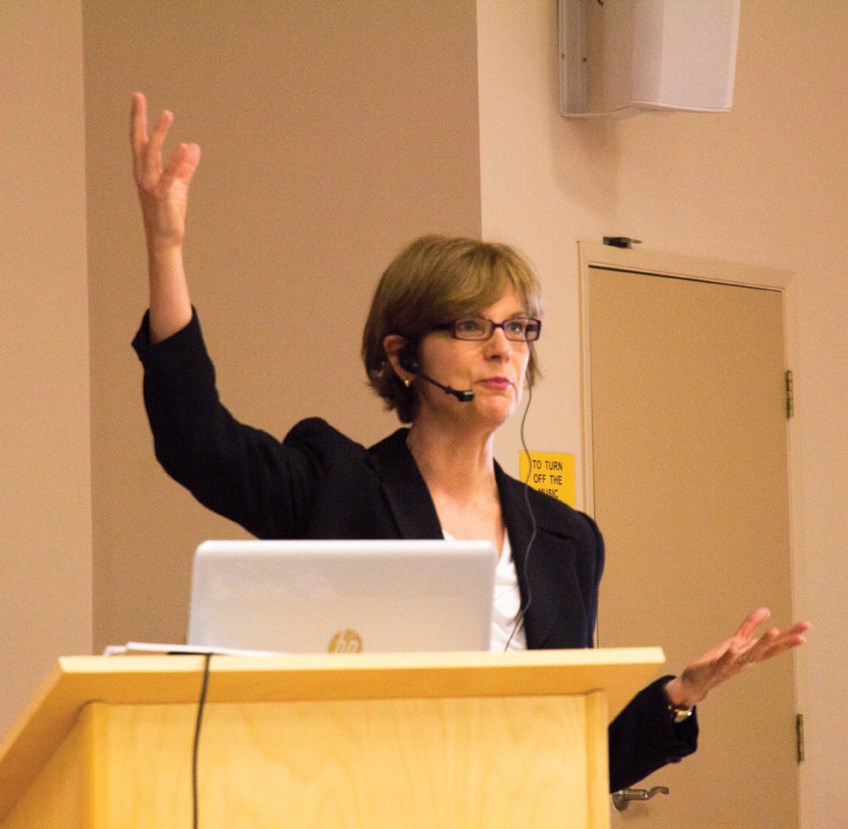Reaction to last week’s announcement of new long-term care beds for the Sunshine Coast continues to ripple through the community.
Vancouver Coastal Health’s (VCH) deal with Trellis Group to build a new facility in Sechelt, and close Shorncliffe and Totem Lodge in 2018, is part of a $40-million, 10-year strategy for six new or expanded facilities.
As well as the new Silverstone Care Centre in Sechelt, Trellis is getting contracts to build and operate two others: Creekstone Care Centre on the North Shore, and Hamilton Village Care Centre in Richmond.
The Sunshine Coast Hospice Society is welcoming the deal as an important step forward. Right now there are only two hospice beds available, both at Shorncliffe. Silverstone will have four.
According to the society, only 16 people were able to access the hospice rooms in Sechelt last year, but a further 24 would have used them if they were available, and the waiting list often has up to five people.
Denis Fafard, interim chair of the society, told Coast Reporter they’re going to work closely with VCH, Trellis, the Order of St. John, and the Centre for Palliative Care on the design and funding for the hospice beds.
“When people come into hospice they’re not coming just into a space, they’re coming into a whole quality and approach to care at the end of life that’s so important,” he said. “Right now you have to walk through an extended care facility to get to the hospice rooms and it’s really not appropriate … The way the [new] design looks is we’ve got a separate entrance, a separate parking lot, so when people come to hospice they’re essentially going to a separate space adjacent to the extended care facility.”
Fafard also said the society is looking at the next two years as a chance for a wider conversation. “We really want to take this as an opportunity to talk as a community about the supports we provide for people at the end of life. A small number of people who die on the Coast will be dying in those hospice rooms, but people will continue to die in their homes, in hospital, in extended care facilities,” said Fafard. “The question for me is what kind of quality of care are we going to be providing all of those people.”
B.C.’s Seniors Advocate, Isobel Mackenzie, said the type of facility being proposed at Silverstone falls in line with some important recommendations her office has made about residential care.
“They’re all being created as single rooms with en suite baths, and the baths all have showers, and that is a very positive step in the right direction,” she said. “I’ve asked by 2025 that 95 per cent of our [residential care] rooms be single room occupancy.”
Mackenzie said her office isn’t taking a position right now on whether government-funded residential care should be entirely within the public sector. She added, though, that it is a question she’s interested in exploring.
“At this moment, with the evidence that we have, there’s nothing to demonstrate – certainly within Vancouver Coastal [Health] – that there’s a difference in the quality of care,” Mackenzie said.
Her office is conducting a survey of people living in residential care, and she says those results will be worth watching. “It will be very interesting to see if, from the perspective of residents, there’s any difference in their quality of life experiences if they live in an owned/operated facility or a contracted facility.”
The shift from the public to the private sector is the key issue for the Hospital Employees Union (HEU), which represents about 300 people who will be impacted. They work as care aides, in food services, and as cleaners.
HEU secretary and business manager Jennifer Whiteside said the union is deeply concerned about the broader trend behind the VCH strategy, which she calls “nothing short of a wholesale privatization of seniors care” stemming from the provincial government’s reluctance to provide capital funding.
“The long-term trend of this shift we’re seeing of health authorities trying to get out of the business of providing long-term care is that we see the creation of much more unstable situations accompanied by lower wages, fewer benefits, and what results from that is a lot more [staff] turnover,” Whiteside said.
“That kind of turnover is really detrimental to the care relationships.”
Online comments from affected employees and others about Coast Reporter’s original story last week speak to feelings of shock and uncertainty about the future.
“The health authority has not been clear with respect to the scope of the impact of this wholesale change,” said Whiteside. “We’re requesting information and awaiting more information so we can properly support our members through this. Care workers across the health authority are very, very anxious and concerned about what their futures hold.”
Several BC Nurses Union members also work at Shorncliffe and Totem, and BCNU officials have said they want to see those details before offering more comments.



